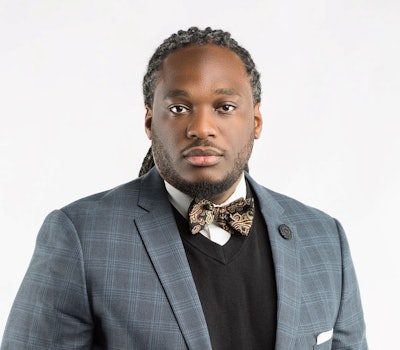With the acknowledgement of increased White nationalist and supremacist activities happening across U.S. higher education campuses, Black faculty have amplified the call for Predominantly White Institutions (PWIs) to acknowledge the unique challenges that these scholars face. From navigating the graduate school and post-doctoral processes, disparate treatment as contingent faculty, thriving on the tenure track, to earning and being respected as full, distinguished, and or endowed professors and the overall lack of Black faculty representation in the professoriate. A burgeoning literature base has begun to evolve to address this gap, the Black professoriate, in the scholarship.
Over the last four years, I have conducted research on the various points within the career cycle of the Black professoriate. However, in this essay I would like to share some strategies rooted both in my review of the extant literature, my own scholarship, and lived experience. Here are nine strategies that I would encourage Black faculty to consider when seeking to thrive at PWI’s.
First: Build multiple communities of support. One that is multi-racial and one that is Black. You will need the multi-racial community which include White colleagues to bounce ideas off of and avoid isolation. At most PWIs there are rarely more than one or two Blacks in a department so you want to identify allies and supporters across a spectrum of identities. When I arrived at my current institution I naively thought that most of my friends would be other tenure-track faculty. However, most of them have been community members and non-Blacks. However, you need to ensure you engage with other Blacks as there will be times you will experience anti-Blackness and the only people that will understand it will be other Black colleagues.
Second: Counseling and mentoring. Having a good confidential professional counselor is important. I happened to have one who has been a faculty member, so they are keened into the challenges I experience. Also developing mentoring relationships with other Black faculty who are in your field and/or maybe outside your field is essential. These individuals can be your peers (same rank) or more advanced. But they should be able to serve as a confidential sounding board regarding successfully navigating the academy.
Third: Leadership support. Provide your administrators (i.e. department head/chairs and deans) with data and articles putting them on alert that you are aware, and they should be aware of the biases and issues you may face. Do all this prior to a major review as they can be less defensive and more proactive as you are not accusing administrators, colleagues, or students but making them aware of these potential issues.
 Dr. Sydney Freeman, Jr.
Dr. Sydney Freeman, Jr.Fourth: Being too successful. If you are in a tenure-track research position publishing for quality and quantity is expected. But recognize that whenever WE are winning and making our other colleagues look less productive, expectations and rules can and will change. So, then all of a sudden it will become about being the president of your academic association. Or that you have not secured a multi-million dollar grant. Or that you are not serving on enough institutional committees. So, you have to be emotionally ready for standards to be raised and barriers to be erected when you are too successful.
Fifth: Be ready to toot your own horn. Administrators may not share your successful accomplishments with your department, college, or university colleagues and community. I think it’s important to be your own agent. Send information to the public relations staff at your college/university. Also, email your chair and dean about every major accomplishment. Don’t wait until your annual review.
Sixth: Health. Staying in good physical health is important. Having a consistent exercise routine along with eating well, and getting proper rest is vital for success. Maintaining healthy relationships with family and close friends is also key.
Seventh: Outside activities. Another career lifeline for me has been traveling. I try to clear my mind by leaving my professional environment. That can be in-state, national, and/or international travel. I would encourage Black faculty to join and participate in social organizations and causes that align with your values, which helps you to keep perspective. For instance, I am a board member for my local United Way. This has given me more sensitivity to the homelessness that is experienced by many in my community. Participate in professional development guilds that are not affiliated with your vocation. My organization of choice has been Toastmasters, a public speaking training group.
Eighth: Protect yourself. Support others (students, colleagues, and the institution) but ultimately look out for yourself and family. Many times, as Blacks we have been socialized to put others’ desires/wants/needs before our needs. While I agree with that idea, I have too often seen that manipulated. Try to do your best to support your students, colleagues, and institution but not at the expense of your research and earning certifications (in some fields) which gives you currency if you want to move institutions.
Ninth: There is no safety in the academy. One author said that almost all people that don’t speak out for what’s right pre-tenure, don’t speak out for what’s right after earning tenure. Be smart but have integrity. Stand up for what’s right. The academy needs our voices to cause positive change.
Dr. Sydney Freeman, Jr. is a tenured associate professor of adult, organizational learning, and leadership at the University of Idaho. His research interest include the college and university presidency, faculty development, faculty careers, and higher education as a field of study.



















